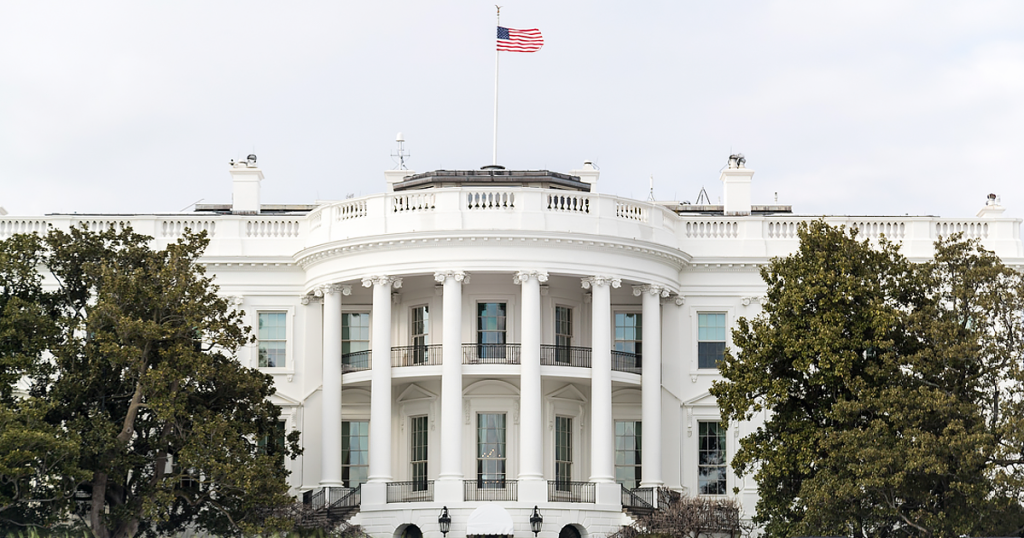The White House is softening its stance on trade — if only temporarily — as it seeks to preserve Republican votes on tax reform, according to senior administration officials, congressional aides and outside advisors.
[Kayla Tausche |September 22, 2017| CNBC]
A long-delayed investigation into Chinese steel dumping is on hold; the calls to withdraw from North American Free Trade Agreement (NAFTA) have quieted; and the criticism of the existing free-trade deal with Korea has been snuffed as the Trump Administration actively works to preserve Republican votes for tax reform, the sole issue that unites the party ruling both ends of Pennsylvania Avenue.
Looking at the rosters for the House Ways & Means Committee and the Senate Finance Committee, “the vast majority are free-traders,” said one senior administration official, acknowledging particularly hawkish trade actions — like withdrawing from NAFTA or slapping tariffs on steel — wouldn’t sit well with that group.
“What we don’t want to do is things that will unnecessarily irritate the Senate, because we need the votes there,” Commerce Secretary Wilbur Ross said Friday on CNBC’s “Squawk Box.” “It’s a very fragile margin, so it’s a question of timing more than it is direction.”
One example: John Cornyn, the Senate’s number two Republican, sits on the Finance Committee and in June was one of seven GOP senators who signed a letter to USTR Lighthizer arguing for open borders with Canada and Mexico.
“It is reasonable for [Trump] to go through the tax reform process and try to get that done in the next month and a half, so long as they can go full-bore on trade,” said Mike Stumo, the CEO of Coalition for a Prosperous America, a nonprofit focused on balancing trade deficits. Stumo expressed worry that the delay was due to “just the ‘Government Sachs’ crowd finding some way to delay everything because they want unrestricted free trade for their Wall Street buddies.”
In late summer, the Commerce Department and the U.S. Trade Representative submitted a report to the White House that contained a “menu of options,” according to one trade official who had seen the document. White House officials — among them, NEC director Gary Cohn and then-strategist Steve Bannon, for instance — wrestled with widely varying viewpoints and could not agree on a course of action, according to two senior administration officials and an outside advisor close to the White House.
When Secretary Ross briefed lawmakers on the progress of the investigations into steel and aluminum in July, he said a final decision was on hold because of the “legislative calendar,” three attendees told CNBC. At the time, the White House was still pushing the Senate to pass the Better Care health care plan.
Sen. Sherrod Brown (D-Ohio) described the briefing in a podcast with the Alliance for American Manufacturing. “The president doesn’t seem to think we can do two things at once, that we could do health care and this,” Brown said, referencing the fears the steel investigation could “cost some [Republican] votes.”
Brown feared waiting until after tax reform efforts to unveil an announcement would delay the decision “basically forever,” concluding the industry would have been better off if the White House “hadn’t even brought it up.”
The White House plans to announce the result of its 232 investigation before the President goes to China in November, according to two senior administration officials and a lobbyist briefed on the plan. A further delay on a tariff announcement would not only keep congressional frustration at bay, officials say it would also arm the U.S. with economic leverage when approaching conversations of national security — issues that prior Administrations have sought to de-link.
“At various times, the president has indicated he’s willing to pull his punches on trade issues if it serves a broader interest,” said Ambassador Michael Froman, U.S. Trade Representative (USTR) for the Obama administration and chief negotiator on the Trans-Pacific Partnership.
It’s unclear how the so-called softening would play out as the U.S. renegotiates NAFTA. Public comments from Lighthizer and the president himself have taken a harsher tone. Trump, in the weeks that followed, suggested no fewer than four times that the U.S. would, in fact, withdraw from the agreement.
Even so, USTR officials in private offer a measured approach. A USTR official said before the first round of negotiations that the U.S. would draw from previously ditched trade agreements like the Trans-Pacific Partnership, if it was deemed the “best text out there.”
“The president continues to say what he said on the campaign,” said Cindy Braddon, president of Braddon Group, which has engaged with the White House and Congress on trade issues. “But the staff is more transparent with their consultations with Congress.”
Some provisions the USTR is considering putting forth for negotiation are not popular with the congressional committees, according to two people briefed on the disclosures. One proposal, called a “sunset” provision, would require all countries to agree on the entirety of the agreement every few years, otherwise it becomes null. A second would make dispute settlements under World Trade Organization (WTO) rules nonbinding. And Commerce Secretary Ross continues to challenge that products receiving special treatment under NAFTA include more parts from the U.S.
“At this point in the negotiations, more challenging issues will start taking center stage, and the U.S. remains committed to advancing and negotiating substantial changes to NAFTA for an agreement that benefits all Americans,” said John Melle, U.S. chief negotiator for NAFTA.
In a speech at the Center for Strategic and International Studies, Ambassador Robert Lighthizer, the current U.S. Trade Representative, signaled his displeasure with the WTO.
“The WTO and its predecessor … were not designed to successfully manage mercantilism on this scale,” Lighthizer said. “We must find other ways to defend our companies, workers, farmers, and indeed our economic system.”
If NAFTA is successfully renegotiated, discussions would not be completed for several months, at minimum — a fact that would allow harsher provisions to be tabled at a later date, though the final deal requires congressional approval.
“The president continues to say what he said on the campaign,” said Cindy Braddon, president of Braddon Group, which has engaged with the White House and Congress on trade issues. “But the staff is more transparent with their consultations with Congress.”
“The president certainly is not going to suddenly be happy with trade deficits. He is not going to be happy with exporting jobs,” Commerce Secretary Ross said on CNBC. “But the real priority is to get the tax bill through.”













